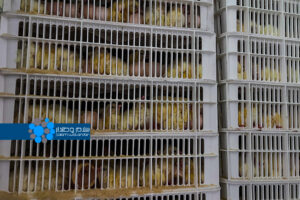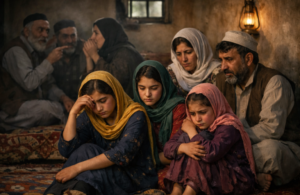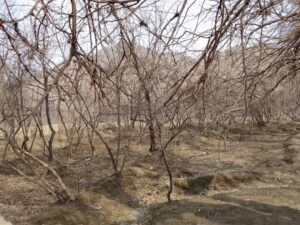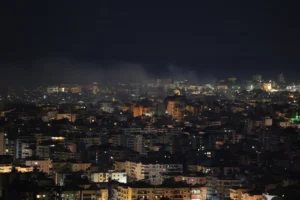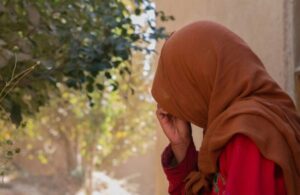ISLAMABAD (SW) – At least 17 female Afghan journalists who are now living in Iran and Pakistan, in an interview with Salam Watandar, say that they are living in a miserable situation and with an unclear future in these countries.
These female journalists add that they migrated after the recent developments in the country. Among these 17 journalists, 13 of them are in Pakistan and the other four are in Iran.
According to the findings of Salam Watandar, among the female journalists who were interviewed in this report, only two of them are busy working with the “Deutsche Welle” and “Afghanistan International” media outlets while the two others are engaged in freelance work and 13 others are unemployed. All of them complain about their difficult economic situation in these two countries.
Minea Akbari, one of these journalists, says: “Now that I have come to Pakistan, it has been a couple of years since I left with a broken heart. Afghans face a lot of problems here.”
Fereshta, another one of these journalists, also says: “As it should be, there are no facilities here that we can benefit from and have a good life. One of the problems and challenges we are facing is that the price here is high, the rent is high, food and everything. Afghans like me are forced to live their lives miserably.”
Among the 17 female journalists who were interviewed in this report, 16 of them also complain about their bad luck and unclear future. They complain about international organizations and say that despite the fact that they were promised cooperation and settlement in one of the destination countries, but no serious attention has been paid to their immigration cases.
Mursal (pseudonym), one of the female journalists, says that although she has worked for five years in different media, including Radio Killid, Sobh-e-Kabul and private TV Tolo News, but after the change of regime, she immigrated and has been living in Pakistan for eight months now.
Mursal added that she is now living in a student dormitory in Pakistan and is facing economic problems, mentaland psychological problems and destitution. She says: “There is no work, life, nothing here. Afghans cannot find work here and there is no guarantee to continue living in Pakistan. For this reason, we are in a state of uncertainty, our future is unclear because we don’t know which country to go to.”
These female journalists say that despite the fact that international institutions have promised to cooperate and advance immigration cases to Afghan female journalists, but with the passing of months, no serious attention has been paid to their immigration cases and there has been slow work in this sector by these institutions.
Sediqah Ahmadi (pseudonym), one of the journalists, says: “My request to the international community is to investigate our cases and act faster.”
Nahid Askari, another journalist, also says: “We want the international community to give priority to the immigration cases of journalists and civil activists, especially women, so that we can get rid of these problems as soon as possible. I want to raise my voice through your media and ask the international community to hear our voice, pay attention to our request and give us priority.”
Marzia Hafizi, who has worked in Afghanistan for 12 years with the private 1TV, Ariana, Tolo News and Radio Bayan, says that she left the country eight months after the recent developments and now lives in Pakistan. She adds that she is now in a state of misery and with the problems that plagued her and her family, she also considers her future uncertain.
Marzia emphasized: “They put pressure on Afghans from different dimension. The prices here have reached its peak. Our cases have been stopped without being prosecuted. Unfortunately, we are facing all these problems at the moment.”
Among these female journalists, 10 of them say that they have faced challenges in renewing their visas in these countries and they cannot renew their visas with continuous efforts. They add that they have proof of the forced deportation of Afghan citizens from Iran and Pakistan, including a number of journalists.
Mina Rahmani, an Afghan journalist who lives in Pakistan, says: “I am facing very serious problems such as visas. Our visa has expired, I had applied, our visa is rejected again. Another problem is that women are not given houses, Afghans are kicked out.”
Zakia Alizada, another Afghan journalist living in Iran, also says: “We cannot live legally because we came with a tourist visa. Now there is little time left for our visa to expire. When our visa expires, they won’t give us a visa and we are completely worried about what to do.”
Zarif Karimi, head of the independent media support organisation (NAI), says that after the regime change in Afghanistan, journalists, especially female journalists, have been severely affected and more than 90 percent of female journalists have lost their jobs.
He adds that in the previous regime, there were nearly 4,000 female journalists working in different media, of which only 1,000 female journalists are working in the media now. According to him, there are no female journalists working in 20 provinces and they faced a difficult economic situation.
The NAI official emphasized: “They carry out journalistic work under very acute and difficult conditions. Besides that, a series of problems from the media and even their families have made them unable to continue working as journalists. Besides all these cases, the economic problems of female journalists are a serious challenge.”
On the other hand, Hujatullah Mujadadi, the head of the Afghan Independent Journalists Association, says that the unemployment of female journalists after the recent developments in the country caused some of them to migrate. He considers the situation of female journalists in Iran and Pakistan to be pathetic and adds that they live in inappropriate conditions.
A number of women’s rights activists also consider the situation of Afghan women journalists in Iran and Pakistan to be pathetic and say that these journalists are now in a state of uncertainty. They add that the world community and international institutions do not pay serious attention to women journalists and their situation in Iran and Pakistan.
Mahjuba Habibi, a women’s rights activist, says: “Forced migrations that were never voluntary, all of them were forced, and in these migrations, unfortunately, our female reporters who live in second countries or our human rights activists who live in second countries, they live with a lot of uncertainty. Human rights institutions don’t pay any attention, the international community doesn’t pay any attention.”
Lina, another women’s rights activist, also says: “Journalists in Pakistan and Iran are in a very difficult situation, they are in a desperate situation where they are threatened with deportation at any moment.”
However, Abdul Qadim Wiar, head of the Committee for the Immunity of Afghan Journalists, says that they do not have accurate statistics on the number of female Afghan journalists in Iran and Pakistan, but he considers the reason for the migration of these journalists to be unemployment and adds that the increase in economic problems and the stoppage of the work of a number of media have caused the migration of these journalists.
He confirms that female journalists are facing many problems, including the expiration of their visas, residence and immigration cases or their transfer to the destination country. Mr. Wiar adds: “Unfortunately, there are many problems in Iran and Pakistan. They [female journalists] are waiting for visas and waiting for the progress of their work to reach the destination countries. Naturally, there are many problems. The problems are visa, residence, lack of transfer process that some of them have promised, but the process is slow and not fast.”
We wanted to have the opinion of the officials of the Ministry of Information and Culture regarding the number of active female journalists in Afghanistan and the increase or decrease of their presence in the country’s media, but we did not succeed.
ENDS

